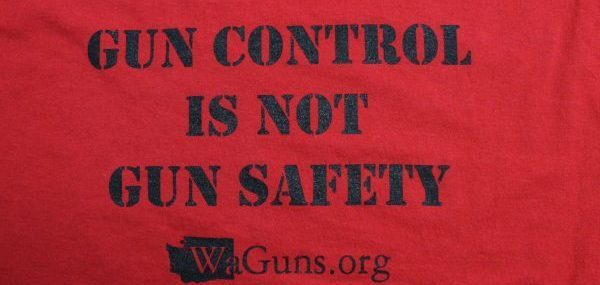
Writing at the National Review, Kevin D. Williamson, author and “roving correspondent” for the publication, has cracked the proverbial code in a piece about the real purpose of gun control laws.
Summing up the cultural divide between rational people and gun-hating zealots in a single paragraph, Williamson observes, “Instead of doing the hard work of enforcing the law on people committed to breaking it, we focus almost all of our efforts on the most law-abiding group of Americans there is: People who legally buy firearms from licensed firearms dealers, a group that, by definition, has a felony-conviction rate of approximately 0.0 percent. These are law-abiding people, but they also are, in no small part, the type of people who mash the cultural buttons of the big-city progressives who dominate the Democratic Party both culturally and financially. From that point of view, what matters is not that retail gun dealers and their clients are dangerous — which they certainly are not — but that they are icky.”
Williamson caps off this critique by noting, “That culture-war mentality produces a great deal of sloppy thinking and ignorant commentary.”
The complete 1,647-word essay could be considered a worthy read for any grassroots gun rights activist, who would then insist it be required reading for every elected official in local, state or federal office who ever advocated for more gun control. He explains gun control “is a culture-war issue rather than a crime-reduction issue.”
Williamson takes specific aim at an opinion piece published in the New York Times earlier this week. It’s author, Gail Collins, is critical of Joe Biden for being unable to push his gun control agenda, and his failure to get gun control advocate David Chipman confirmed to head the Bureau of Alcohol, Tobacco, Firearms and Explosives.
“Banning assault weapons was on Biden’s to-do list,” Collins complains, “along with universal background checks and a stronger, more forward-looking Bureau of Alcohol, Tobacco, Firearms and Explosives under the leadership of David Chipman.”

With that sentence, Collins confirms what Second Amendment advocates had been arguing all along—and which backers of Chipman’s nomination dismissed as paranoia—that the retired ATF agent-turned-gun control “advisor” to the Giffords gun prohibition group would weaponize the agency against firearms owners.
Collins spent time promoting gun control legislation sponsored by anti-gun Sen. Chris Murphy (D-CT) that would require so-called “universal background checks.” She calls people making private sales at gun shows “unlicensed sellers.”
However, in his piece, Williamson notes, “Collins apparently has not bothered thinking much about the most obvious and most relevant question: Are guns bought at gun shows a significant contributor to crime? Fortunately, we have a whole federal office — the Bureau of Justice Statistics — that keeps track of these things. Its finding? ‘Among prisoners who possessed a firearm during their offense, 0.8% obtained it at a gun show.’” Liberty Park Press has reported this several times in the past.
Gun control isn’t about stopping crime, as Williamson’s National Review article explains, and Collins confirms in her final paragraph. It’s about taking a swipe at the so-called “gun lobby.”
“So here we are,” Collins states, “watching Senator Murphy heroically trying to round up enough support to keep felons from buying pistols at gun shows. God knows his bill won’t solve the whole problem, but if it passes, we can at least savor the thought that the weapons lobby finally had a bad day.”
Collins unintentionally explains what this is really all about. Williamson’s rebuttal piece nails it down.
“But that is really what Kulturkampf politics is all about,” he posits, “fortifying one’s own social status by exercising ritual domination over cultural rivals. That’s how you get punitive tax policies that don’t raise much revenue, ‘inclusiveness’ policies based on exclusion, and gun-control proposals that don’t have anything to do with gun crime. It just feels good to exercise power over people you loathe or envy. That is the beginning and the end of it.”
Unfortunately, that isn’t the end of it. Gun control efforts will continue, although Collins admits up front “We call this gun safety, people, because ‘gun control’ makes a lot of politicians nervous.”
Actually, according to Second Amendment advocates, gun control has become gun prohibition, which is, they contend, what the movement has really been all about, anyway.